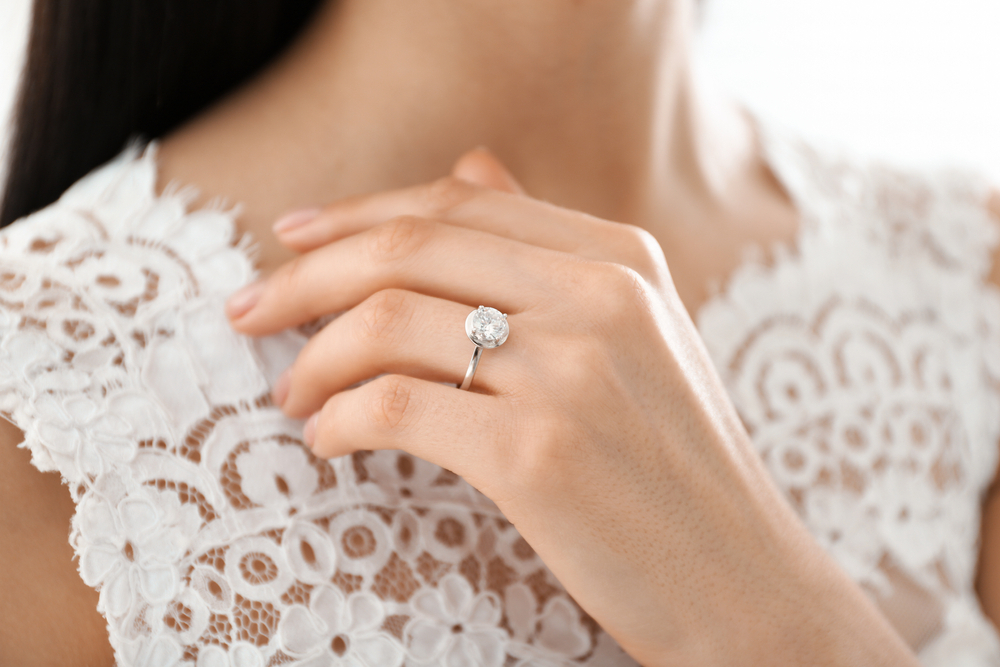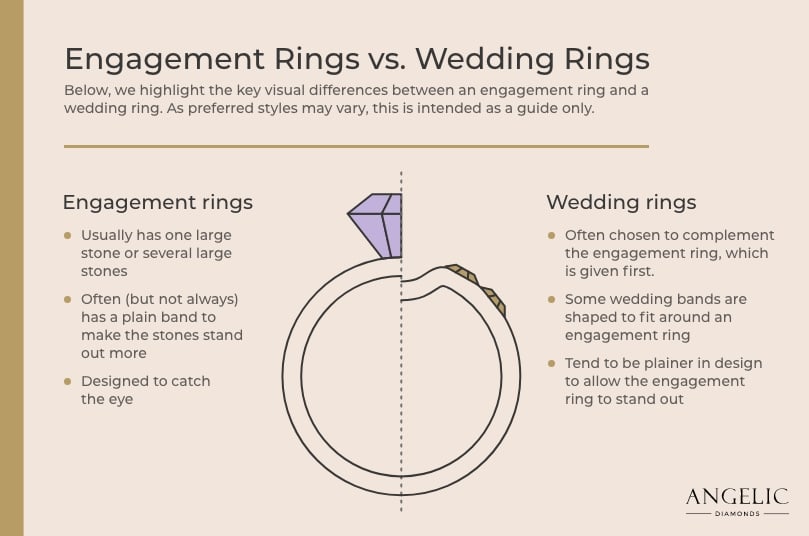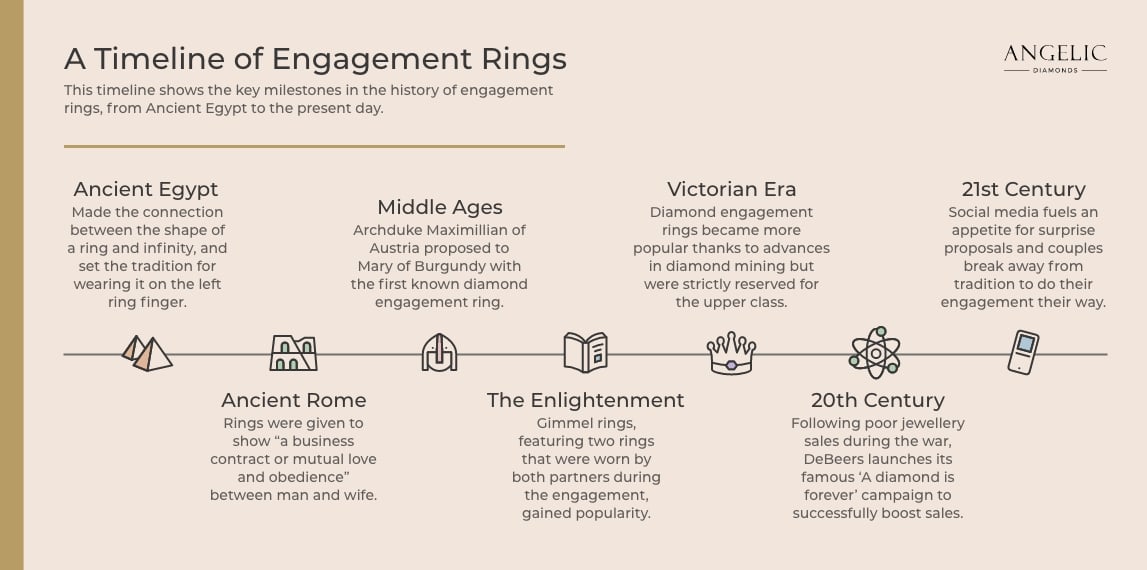Who should keep the engagement ring in the event of a split?
Breakups are certainly hard. They can be even harder when it involves calling off an engagement and, subsequently, figuring out what to do with the ring.
Celebrities such as Maya Jama and Paris Hilton have been asked to give their engagement rings back after their respective splits. In fact, Maya Jama was allegedly sent a ‘legal letter’ demanding the £800,000 ring back. However, you may have also seen that Britney Spears is choosing to give her engagement ring back to her ex-husband due to him getting the ring for ‘free’.
So, in the event of a split, who do we think should keep the ring? We’ve surveyed 2,000 people as to their opinion on whether the recipient or the proposer should keep the ring, as well as what to do in the event of a split if the ring is a family heirloom.
The key findings:
- 28% of respondents believe the recipient should keep the ring, no matter the circumstances of the split.
- However, there are big differences in agreement with age groups. Just 16% of those surveyed aged 16-24 believe that the recipient should always keep the engagement ring, compared to 34% of those aged between 45-54.
- If the proposer was to cheat, 21% believe the recipient should keep the engagement ring in a split.
- Surprisingly, only 17% believe the proposer should keep the ring even if the recipient was to cheat and the reason behind the split.
- But if the engagement ring is a family heirloom, 21% believe the proposer should keep that ring.
- However, women value a family heirloom more than men according to the survey results.

More than a quarter believe the recipient should keep the engagement ring, regardless of the reason for the split
We conducted a survey of over 2,000 where we asked questions as to who should keep the engagement ring, with respondents able to choose multiple answers.
Overwhelmingly, 28% of respondents believe that the recipient should keep their engagement ring and not the proposer, regardless of the circumstances of the split.
Digging deeper into our survey findings, we can see that 27% of men and 29% of women agree with this statement.
However, there are significant differences of opinion when we look at the age groups of respondents. Just 16% of those surveyed aged 16-24 believe that the recipient of the engagement ring should keep the ring in a split, no matter the circumstances. Whereas, more than a third (34%) of respondents aged 45-54 believe that the recipient should always keep the engagement ring.
This could be due to the slump in marriages for young people, so they are less likely to consider who gets to keep the engagement ring in the event of a split.
A fifth believe the recipient should keep the ring if the proposer is the reason for the split
We also asked who should keep the engagement ring if the proposer were to cheat.
Over a fifth (21%) say the engagement ring recipient should keep it if the proposer was to cheat, with both men and women agreeing unanimously. Surprisingly, if the recipient was to cheat and the reason behind the split, only 17% of people surveyed believe the proposer should keep the ring.
But the same cannot be said if the engagement ring is a family heirloom.
The proposer should keep the ring if it is a family heirloom, according to our survey
More than a fifth (21%) of respondents agreed that if the engagement ring is a family heirloom, the proposer should keep it - no matter the circumstance of the split.
However, this differs when looking at men and women - just 14% of men believe the proposer should keep it in this circumstance, whereas a staggering 27% of women think the same highlighting how they value the heirloom more.
The likes of Prince Harry and Prince William have both proposed with family heirlooms, with Prince William said to have proposed with a ring worth £400,000.
Interestingly, this is where you may have to give the ring back.
Who legally owns the engagement ring?
As stated in the
“The gift of an engagement ring shall be presumed to be an absolute gift; this presumption may be rebutted by proving that the ring was given on the condition, express or implied, that it should be returned if the marriage did not take place for any reason.” Essentially, the engagement ring does belong to the recipient, even if the recipient was the one to break off the engagement. The above statement does not take into account the circumstances behind the split. There is no obligation for the recipient to give back the ring as it was intended as a gift. If you did, however, state that the ring should be given back in the event of a split, the burden of proof is on you, as the proposer, to show that this was the case. When it comes to a family heirloom, it’s implied that this would be given back if the engagement was to end - and the courts would likely see it that way. Melanie Carson, Founder of Dispartio, a legal service company also states: “It is an absolute gift, however, the exception is if it is a family heirloom. There is often a caveat if it is a family heirloom, it is expected to be returned if there is a breakup. Sometimes, the recipient chooses to return it as often people don’t want the reminder of a relationship breakup.” The same rule applies if the couple were to divorce. The engagement ring is still considered an “absolute gift”, which means it is the recipient’s to keep unless an agreement was put in place to return the ring. Melanie also states that “during divorce proceedings, it is often the monetary value of the ring rather than sentimental that becomes the issue. Although considered an absolute gift, engagement rings can often be included on the Form E assets list due to their value (if valued over £500). The more expensive the ring, the greater bearing it may have on the financial settlement with some engagement rings being worth tens of thousands of pounds. When the rings have significant value, consideration of them in proceedings make be more likely as they may be considered a main financial resource for one party.” There are ways in which you can bring up the discussion, particularly if you have ended cordially or feel that you are able to converse with your ex-partner about the reasons you want to keep, or get the ring back. If you or your ex-partner feel uncomfortable visiting each other’s homes to discuss the ring and any other items, opt for a neutral setting. You could go to a coffee shop, a park or somewhere that makes both of you feel at ease. This could be a difficult conversation so you want to make sure the environment doesn’t add any further stress to the discussion, so avoid busy areas where it is easy to get distracted. You could even include a neutral third-party if you feel you will both communicate better in the presence of someone else. For any difficult conversation, you should always be as open as possible. Share the reasons you would like the engagement ring back or vice versa and try to answer everything the other person asks, where possible. Of course, this isn’t always possible but starting the communication with an open-mind and transparency is the best way for you to get out of the conversation what you would like. We understand that there are feelings involved but if you can keep all communication clear and simple, this will be the best course to resolving any issues with the engagement ring or other items. Try to stick to facts where possible and avoid any name calling which can lead to even more issues down the line. If you have any more questions regarding your ring, check out our engagement ring guides for all of the answers.
What if the engagement ring is a family heirloom?
Who keeps the engagement ring after a divorce?
How should you proceed to get an engagement ring back?
Choose a neutral setting
Be open and honest
Keep all communication clear
You May Also Like

Engagement Rings vs. Wedding Rings
You’ve found the one and you’re getting ready to pop the q ...

History of Engagement Rings
If you’re gearing up to pop the question to your significant oth ...

Do men wear engagement rings?
Throughout history, women have typically been the receivers and wearer ...
